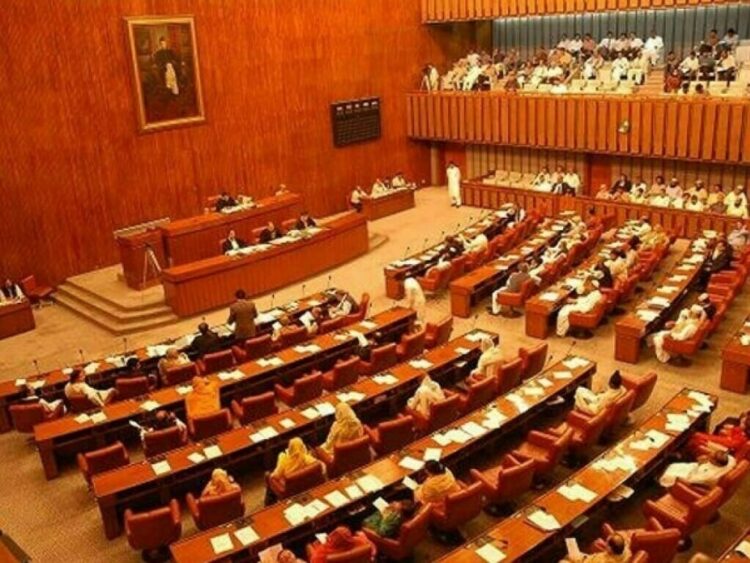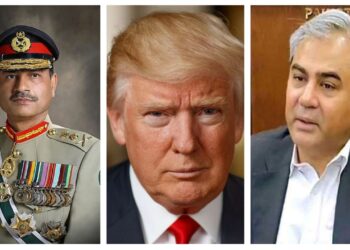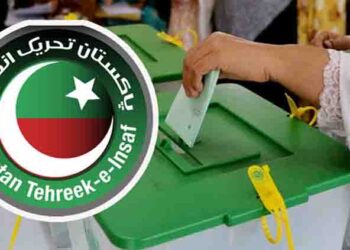Islamabad: The Senate Functional Committee on Government Assurances met today at the Old PIPS Hall in Parliament Lodges, Islamabad, under the chairmanship of Senator Abdul Shakoor Khan. The committee examined the implementation status of commitments made by federal ministries on pressing public concerns, including digital connectivity, healthcare facilities, energy tariffs, and highway development.
The Committee took up critical issues, beginning with the long-standing concern of poor telecom services in underserved regions. The Ministry of Information Technology and Telecommunication informed the Committee that surveys have been conducted and new projects have been initiated at three different locations to address the non-availability of 4G data and voice call services in Dheri Mera, Union Council Salhad, District Abbottabad.
Expressing dissatisfaction over the slow progress, Senator Dost Muhammad Khan highlighted, “Thousands of residents in Wana, South Waziristan—estimated at 25,000 to 30,000 people—remain deprived of internet facilities.” Supporting this, Senator Kamran Murtaza stressed, “Similar connectivity gaps persist in Balochistan, where towers exist but signals remain non-functional.” The Committee directed the Ministry to submit a follow-up report within three months.
On healthcare, the Committee discussed the delayed installation of an MRI machine at the Federal Government Polyclinic Hospital, Islamabad. Officials clarified that the machine was donated by the Government of Japan. The civil work pertaining to the operation of the machine had been delegated from Pak PWD to the CDA, resulting in procedural delays. Civic work is expected to be completed within ten days, while Japanese engineers are scheduled to visit in the first week of August, 2025 for installation and operation. Chairman Senator Abdul Shakoor Khan remarked, “the concerned authorities must seek confirmation from the Japanese Government on the exact operational date to avoid further setbacks.”
Turning to infrastructure, Senator Dost Muhammad Khan voiced serious concerns over the deteriorating condition of roads in Khyber Pakhtunkhwa. “NHA must ensure timely repair or recover costs from contractors if standards are compromised,” he insisted. Ministry officials assured that the matter would be taken up with the concerned contractors for immediate action.
The Committee also took up the critical issue of petroleum pricing deregulation. Senator Kamran Murtaza sought clarity from the Minister for Energy (Petroleum Division) regarding the government’s plans to delegate the authority of petroleum products price fixation to oil marketing companies (OMCs). Officials informed the Committee that, in line with the Prime Minister’s directive, various proposals for a deregulation framework have been discussed with key stakeholders, including refineries, the Oil Companies Advisory Council (OCAC), the Oil Marketing Association of Pakistan (OMAP), petroleum dealers, and transporters.
Senator Kamran Murtaza inquired about possible risks such as reduced market share for refineries, increased smuggling and quality issues, market dominance by large OMCs, price hikes during peak demand, and unrestricted imports leading to hoarding.
In response, the Ministry clarified that a phased approach is under consideration. Initially, the pricing formula may be delinked from Pakistan State Oil (PSO) to foster fair competition. Market behavior will be closely monitored before fully deregulating prices to ensure consumer protection and sector stability.
The meeting was attended by Senator Zamir Hussain Ghumro, Senator Dost Muhammad Khan, Senator Kamil Ali Agha, Senator Kamran Murtaza and senior officers from the concerned ministries and departments.


























